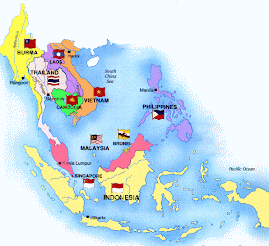skip to main |
skip to sidebar
Climate change, developed world v. developing world and biochar
Dr. D. Michael Shafer
Director, Warm Heart Foundation, A.Phrao, Chiang Mai
"Because we are among the world’s 1.2 billion rich people and not its 5.4 billion poor, it is easy to think about the climate crisis, solutions to the climate crisis and sustainability in terms of developed world actions and initiatives. Given the focus of diplomatic, media, policy, and scientific attention, this is entirely understandable. It is also entirely wrongheaded. If you ask, Where can we most easily improve environmental outcomes? Achieve sustainability? Reverse climate change? To say nothing of where can we alleviate the most suffering and promote the greatest good? The answers are all found in the developing world. Environmental action in the developing world by and for the 2.54 billion of the world’s poorest people, very small farmers, can do more right now and at less cost to advance our shared interest in global sustainability than anything else imaginable.
What is to be done? Train billions of small farmers in the developing world to turn their crop wastes into biochar instead of burning it. ..."
Conclusion
"The conclusions that follow from this extended argument should be encouraging for the developed world reader not attempting to commercialize biochar. Stated a boldly as possible: (1) Because the climate change calamity falls largely on the developing world, it must mobilize to solve the problem, not merely postpone it. (2) Unlike the developed world, where much depends on intergovernmental and even inter-nongovernmental organization coordination – a huge task – the remedy required in the developing world requires no coordination and little government action. (3) Developed world efforts to reverse climate change are nascent and decades from ramp up, the technology and project required to remove billions of tons of CO 2 from the atmosphere is ready and waiting in developing world. (4) The developed world winces at the cost of development assistance, but two critical details recommend the proposed program: it clearly serves the interest of the developed world and it will reduce future spending on such financial black hole programs as health and food aid. (5) Finally, because the proposed program works by creating incentives for the world’s poorest to help themselves, it is an investment in reducing climate change’s most salient political challenge: how to manage the hordes of hunger refugees who will storm the borders of the developed world?"





No comments:
Post a Comment